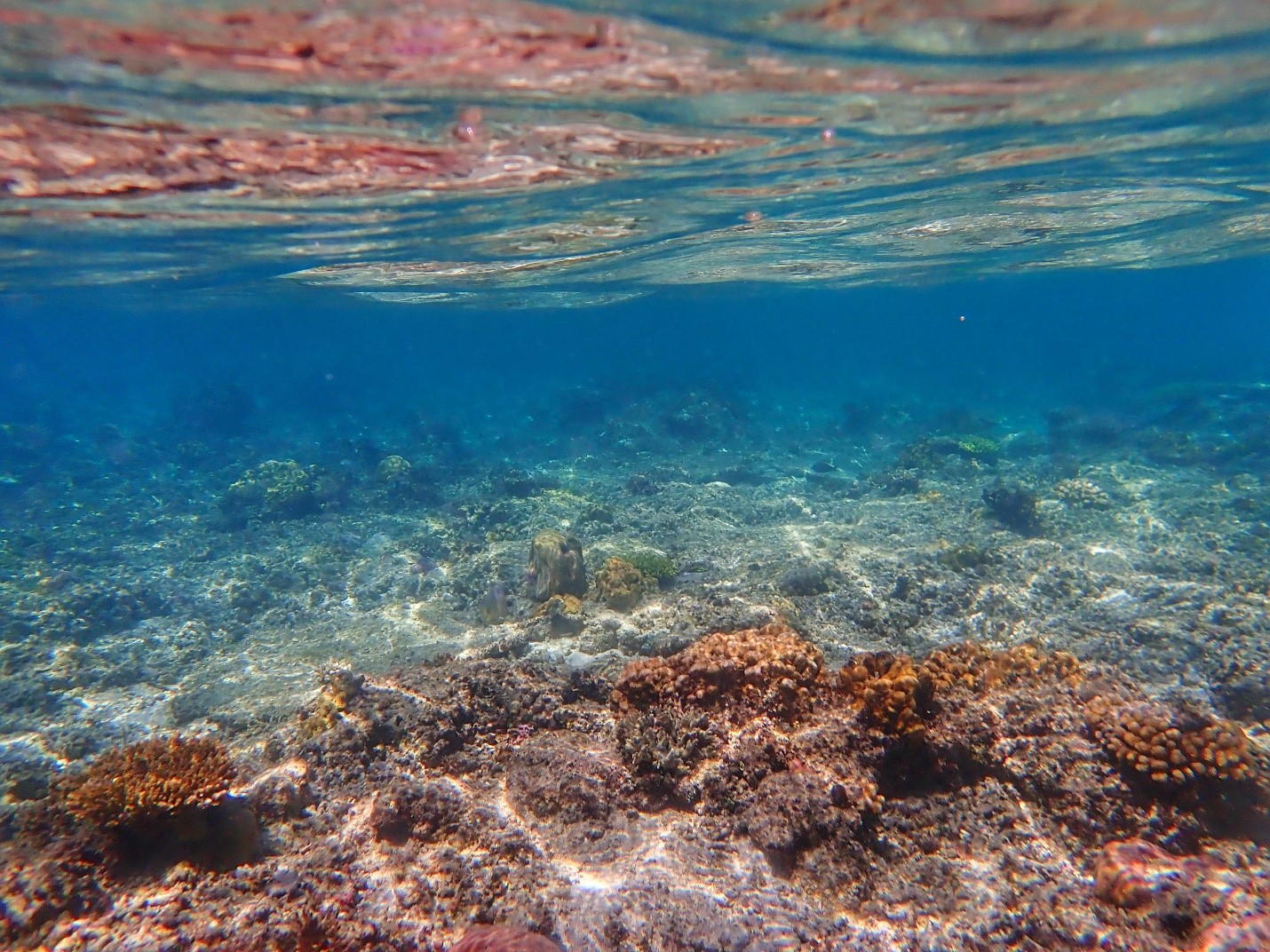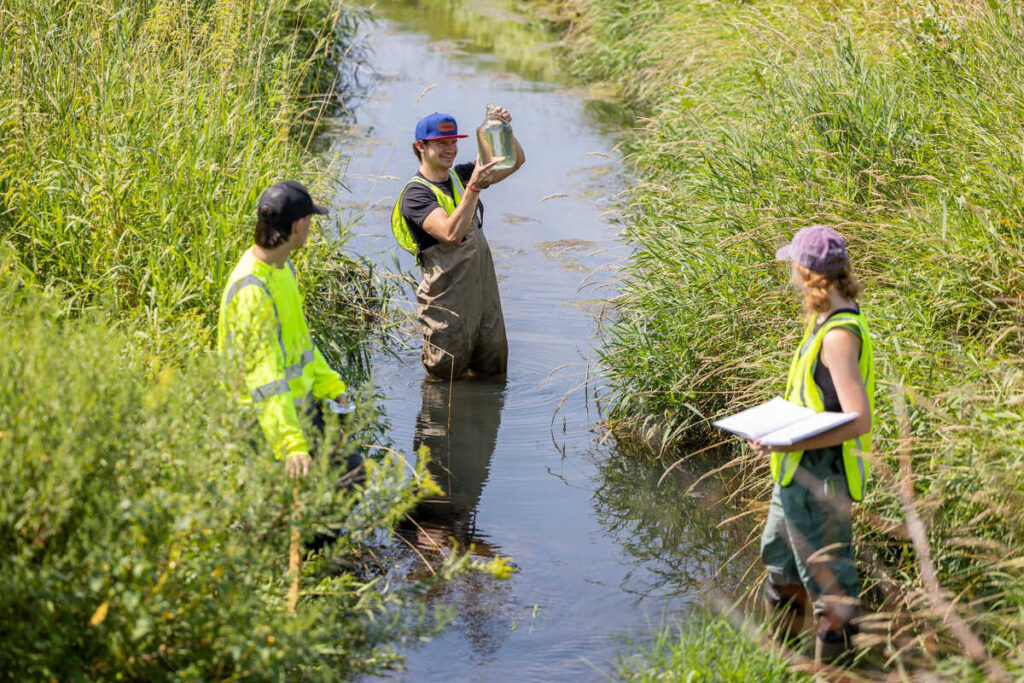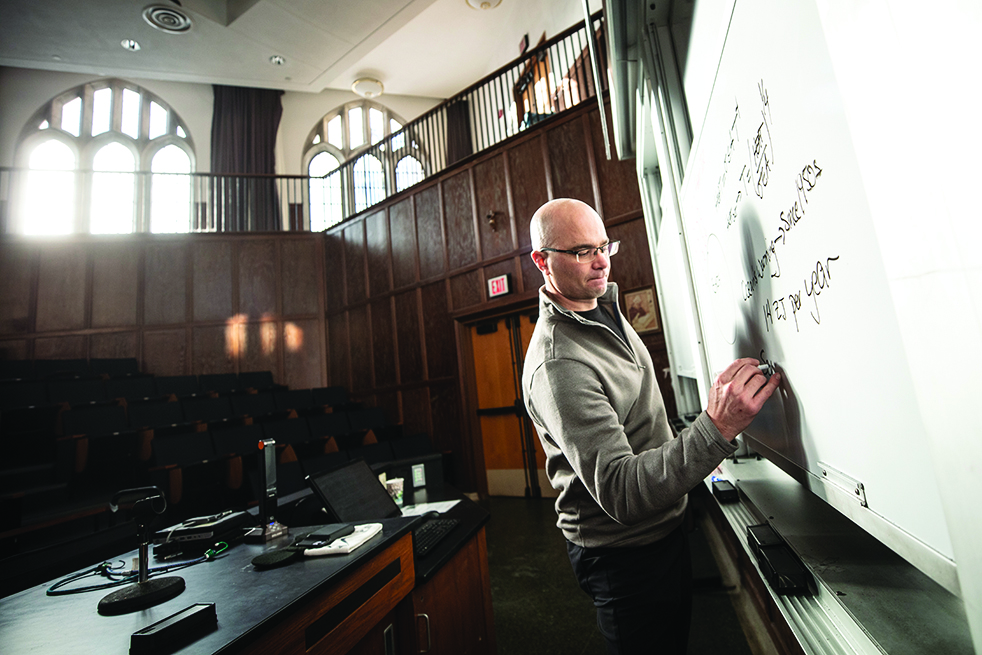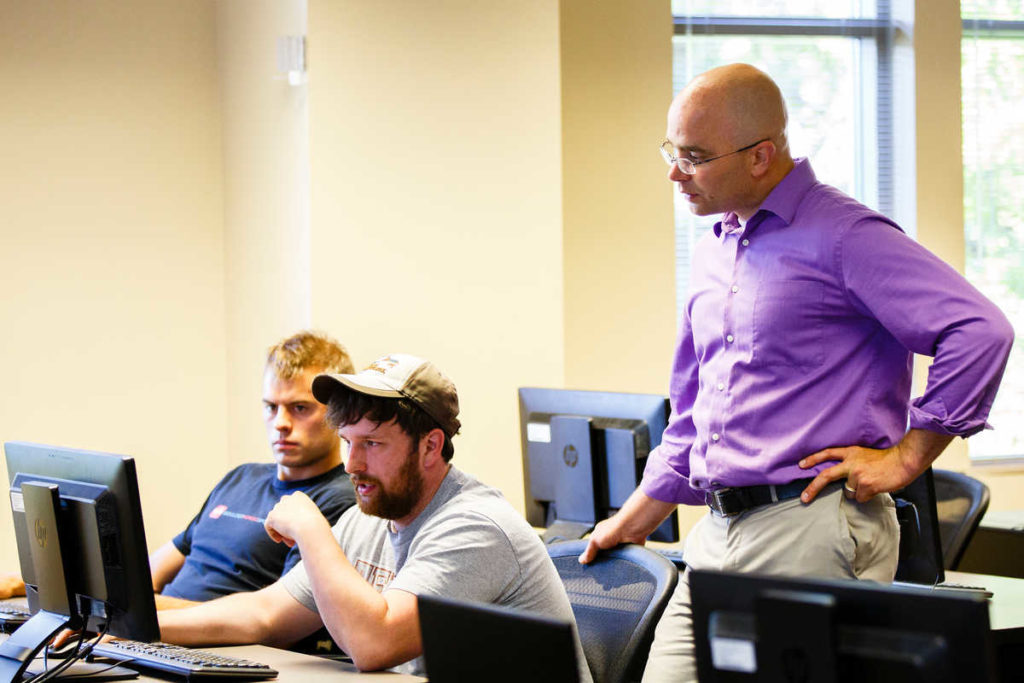Tommie Experts taps into the knowledge of St. Thomas faculty and staff to help us better understand topical events, trends and the world in general.
A new analysis shows the world’s oceans were the warmest in 2019 than any other time in recorded human history, especially between the surface and a depth of 2,000 meters. The study, conducted by an international team of 14 scientists from 11 institutes across the world - including School of Engineering professor John Abraham - also concludes that the past 10 years have been the warmest on record for global ocean temperatures, with the past five years holding the highest record.

John Abraham
The authors published their results today in Advances in Atmospheric Sciences, with a call to action for humans to reverse climate change. In the face of such disastrous effects as the 17.9 million acres Australian bushfire, which has resulted in 24 deaths and thousands of homes destroyed so far, the researchers report that global ocean temperature is not only increasing, but also it’s speeding up.
The research has been published in media outlets around the world, including in The New York Times, The Guardian, CNN, Newsweek and Daily Mail.
“It is critical to understand how fast things are changing,” said Abraham, co-author and professor of mechanical engineering at St. Thomas. “The key to answering this question is in the oceans — that’s where the vast majority of heat ends up. If you want to understand global warming, you have to measure ocean warming.”
2019 broke the previous records set in prior years for global warming, and the effects already are appearing in the form of more extreme weather, rising sea levels and harm to ocean animals.
“Global warming is real, and it’s getting worse,” Abraham said. “And this is just the tip of the iceberg for what is to come. Fortunately, we can do something about it: We can use energy more wisely, and we can diversify our energy sources. We have the power to reduce this problem.”
The Newsroom talked with Abraham to understand more of the research and his role in the process.
You’ve been researching climate change and its effects for a long time, and different research contributes to this meta narrative about climate change and global warming. What stands out to you as most important about this research in this ongoing understanding?
This is telling us a couple things: If you want to measure global warming, you have to measure ocean warming. More than 90% of global warming heat ends up in the oceans. If you can’t measure that, you can’t measure how fast the globe is warming. … You can measure all kinds of things, but in quantifying how fast the climate is changing, the ocean is the metric.
The most important takeaway is that there's an inexorable increase of heat in the ocean. There’s no natural explanation for it. It’s been going on for decades at a pace where the only explanation is human-caused warming. … This isn’t a political football game. This is real data from real temperature sensors spread out around the ocean. In terms of science, this is irrefutable data, and it’s up to us to decide what to do about it.
What was your role in the research process?
I worked to improve the accuracy of the temperature sensors.
If you want to measure the ocean temperature, you have to have enough sensors spread out around the ocean to get an accurate picture. The oceans are huge, and cover about 70% of the planet. There isn’t an ocean temperature; there’s a bunch. You have to measure the entire ocean, and deep enough. We show in this paper that the heat has penetrated deep, even below 2,000 meters. Temperature sensors have to go from the surface to these great depths, which is hard to do.
Around the 1950s and 60s, scientists were using sensors they would drop off the sides of ships. If Toyota was bringing a shipload of cars from Japan to the U.S., they might ask them to drop 100 sensors overboard. That was a great way to get some temperature measurements, but what happened was that our measurements were confined to shipping routes … mainly in the northern half of the globe. Fortunately, there were enough dropped so we had a pretty good sense of what was happening to the ocean as a whole.
In 2005, a new system was deployed, called the ARGO Float System, which is autonomous. It has 38,000 temperature sensors spread out uniformly, not confined to shipping routes. These ARGO floats use buoyancy to go up and down and collect data, then rise to the surface and beam their information to satellites and scientists. This revolutionized the way we view ocean heat.
You write that we have the power to reduce this problem, that we can use energy more wisely and diversify our energy sources. What can people do to help make those shifts?
For some people, it’s enough to know they want to make the world a better place, to make a shift and incur some personal sacrifice. For other people driven by other motivations, it could be cost or a fear that someone will infringe on their personal liberty. Those two fears, added cost and infringement, have made this issue difficult to tackle for many people. For those people, the data doesn’t matter; what will matter are two things: one, when they start to see the consequences in their lives. Two, when the cost of clean energy is justified based on its own economics.
A few years ago I did a study on how climate change impacted Hurricane Harvey … the one near Texas that dumped a ton of rain. We quantified how much of that rain was from global warming. When those people hit by Harvey see the impact it has made on their daily lives, that can make an impact on their behavior. The same is true with Superstorm Sandy, the fires we’re seeing in Australia and the crazy drought we saw a few years ago in California.
For other people, they will jump on the bandwagon when it makes economic sense. That’s where I draw optimism. We’ve reached a point with renewable energy where they can compete with coal economically. … I outfitted my entire house in south Minneapolis with solar panels last year, and the return on investment is seven years. … We’re at a point people can no longer argue that it does not make economic sense. That will be a big motivator for people who don’t take action because the science has spoken.







